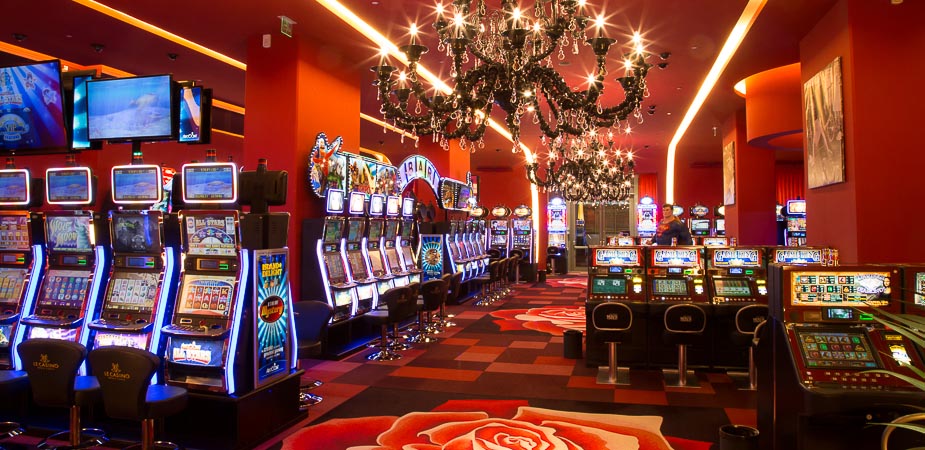
Within the lively realm of gambling halls, where the atmosphere buzzes with excitement and the clinking of chips fills the environment, the role of a game dealer is both crucial and fascinating. Each day, these skilled experts step into a world where luck and tactics intertwine, guiding players through the ups and downs of their selected casino titles. From table games like 21 and texas hold ’em to the spinning wheels of the roulette table, dealers manage the action while ensuring that every game runs smoothly and honestly.
As the sun rises on another bustling day, a casino dealer prepares to immerse themselves in this dynamic setting. Their responsibilities extend beyond merely distributing the cards or spinning a wheel; they are also performers, customer service representatives, and keepers of the rules. Each shift brings new obstacles and interactions, making every day distinct in the life of a casino dealer. This behind-the-scenes look will explore the day-to-day operations of a casino game dealer, showcasing the skills and experiences that make this career both exciting and rewarding.
The Role of a Gambling Game Dealer
A casino game dealer is at the core of the gambling experience, orchestrating the progress of the play while ensuring that players are involved and enjoying themselves. Their primary duty is to manage the table, which involves distributing cards, spinning the wheel, or managing the chips, depending on the game being played. Dealers must have a thorough understanding of the regulations and guidelines governing each game, while also upholding a welcoming and approachable demeanor to enhance the gambling atmosphere.
In addition to overseeing the gameplay, croupiers must also keep a close watch on the players and the environment around the game. This includes watching for any signs of cheating, ensuring that everyone is adhering to the rules, and resolving any conflicts that may arise among players. Effective communication skills are essential, as dealers often provide explanations about the game’s mechanics and offer assistance to those who may be novice to gambling games.
Moreover, a croupier’s role extends past just the mechanical aspects of the game. They play a key part in crafting an immersive experience for the players. This necessitates building a rapport with patrons, being sensitive to their needs, and often adding an element of fun into the play. It’s this mix of skill, vigilance, and people skills that makes the role of a casino game croupier both demanding and rewarding in the vibrant world of casino games.
Daily Responsibilities and Challenges
One of the key responsibilities of a dealer in a casino is to manage the multiple games offered at their table, making sure a seamless and satisfying experience for players. Dealers must be skilled at distributing cards, counting chips, and maintaining the flow of the game. This necessitates a sharp understanding of the rules of each game, from blackjack to roulette, and the ability to address players’ questions while keeping the game moving. Attention to precision is essential, as dealers must track bets, disburse winnings correctly, and monitor any cheating or discrepancies at the table.
In addition to supervising the game per se, dealers face challenges such as managing difficult players. The casino environment can be high-pressure, particularly during high-stakes games, and a dealer must remain composed and professional at all times. They need strong interpersonal skills to navigate interactions with players who may be frustrated about losses or dissatisfied with the game’s speed. Handling these situations delicately is important in creating a friendly atmosphere on the casino floor.
Another significant responsibility is maintaining the integrity of the game. Dealers must be vigilant and attentive, watching for any signs of collusion or cheating among players. This involves not only a strong knowledge of the games but also an awareness of player psychology. They must also follow the casino’s regulations and procedures, taking part in regular training sessions to stay informed on rules and protocols. Balancing these responsibilities while providing excellent customer service is what makes the role both challenging and fulfilling for a dealer in a casino.
Qualities and Traits for Success
A effective casino game dealer must possess excellent communication skills. nhận định bóng đá nét This includes not just the ability to explicitly explain game rules and procedures to gamblers but also the capacity to connect with them in a cordial and professional manner. Cultivating rapport with guests can enhance the gaming experience and encourage repeat visits to the casino. bongdanet Strong communication enables dealers to manage tables seamlessly while ensuring that players feel entertained.
Moreover, robust mathematical skills are essential for a dealer. Quick calculations are often required to keep track of bets, payouts, and game outcomes in real time. A dealer’s ability to perform these numerical tasks accurately and swiftly contributes to the overall efficiency of the game. This skill helps in maintaining the flow of play and in minimizing disputes or misunderstandings with players, which is crucial in a dynamic casino environment.
Lastly, an ideal casino game dealer should show integrity and professionalism at all times. Trust is a key component of the gaming experience, and players must feel secure that the games are conducted equitably and transparently. A dealer’s devotion to upholding high ethical standards fosters a friendly atmosphere at the table and enhances the casino’s reputation. Being consistent in behavior ensures that dealers leave a enduring impression on guests, which can lead to a loyal customer base.
